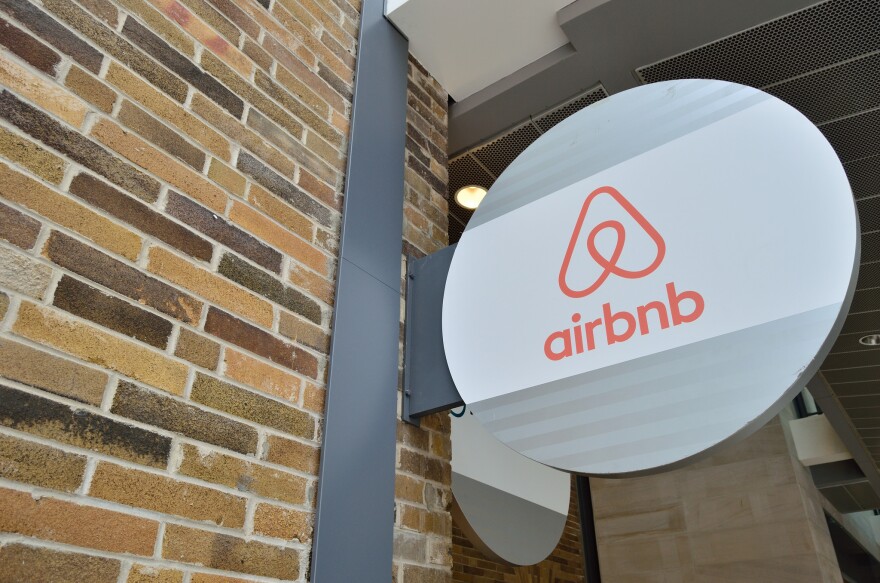The home-sharing platform Airbnb released data this week showing just how much money its service adds to the pockets of Utahns. The company, which bills itself as a community-driven hospitality platform, says approximately 246,000 people stayed at airbnb rentals in Utah in 2016, providing $35.6 million dollars in supplemental income to local residents.
The release of those numbers coincided with the Utah Legislature’s consideration of a bill authorizing hosts of home-renting services in Utah to rent out their homes. Herriman Republican Rep. John Knotwell's House Bill 253 specifically allows "owner-occupied short-term rental" and blocks local governments from creating ordinances to prohibit those rentals. The "owner-occupied" portion of the bill means that renters are supposed to be on-hand during the period of the rental.
Knotwell's bill was heard during a meeting of the House Business and Labor Committee on Monday, where Spanish Fork resident Susan Fulmer told committee members after her husband died she struggled financially, and renting out her home allowed her to again become self-sufficient.
The first time in three years that I was able to pay my bills by myself was amazing. I’m a parent. At this point in my life, I should be helping the kids get established in their lives, not having them help me to make ends meet.
John Garfield, Chairman of Marriott Business Council, which represents 49 hotels across Utah, spoke against the bill. Garfield said while the industry he works for welcomes competition, cities should be allowed to regulate short-term rentals and additional state-level regulation would help create a level playing field in the hospitality industry.
We’re required to put a lot of processes in place in case there’s an issue with safety. We feel that short-term rentals should have that same responsibility. They should also cover insurance, so if there is something catastrophic there is coverage for them. We also believe they should be paying their taxes. Some pay sales taxes, but they may not be paying hotel taxes and other taxes associated with what is paid at the hotel level.
But that argument wasn't enough to sway committee members. It's possible too that because airbnb already has an agreement with the state of Utah to collect online sales tax, lawmakers weren't prepared to rock the boat.
The bill advanced out of the committee with a favorable recommendation on a 13-1 vote. It will next be heard on the House Floor.


